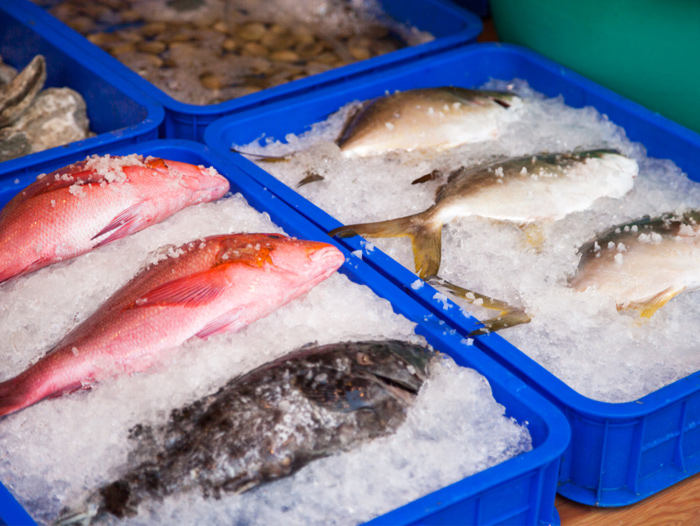New Measures Introduced to Combat Forced and Child Labor in Seafood Businesses
April 1, 2019 | 4 min to read

The Marine Stewardship Council (MSC) has today announced new requirements for seafood suppliers and processers. They include the introduction of independent audits of labour practices for supply chain companies if a risk of forced or child labour practices is established.
Dr Yemi Oloruntuyi, Head of Accessibility at the MSC said:“Around the world, more than 150 million children and 25 million adults are involved in forced labour. We recognise the urgency in addressing forced and child labour violations and have put measures in place to tackle this issue in the supply chain for certified seafood. This update to our supply chain requirements will provide seafood buyers and consumers with greater assurances that companies involved in processing and packing MSC and ASC certified seafood do not employ forced or child labour.”
The new requirements are introduced as part of the MSC’s updated Chain of Custody Standard published today. This standard provides seafood buyers and consumers with confidence in the traceability and integrity of the supply chain for both MSC and ASC (Aquaculture Stewardship Council) certified seafood. Over 4,500 seafood companies and subcontractors, in more than 45,000 sites in around 100 countries, are currently certified to handle seafood for sale with the MSC and/or ASC labels.
Assessing risk of forced and child labour
All MSC Chain of Custody certificate holders will be required to undergo an independent labour audit unless they can demonstrate that they are at “lower risk” of practising forced or child labour.
To determine if a labour audit is necessary, a supply chain company will be assessed to see what level of risk there is of labour violations occurring during processing, packing or repacking, and manual offloading in the country or countries they operate in. If a country is considered of lower risk, according to two or more of the following indicators, then the site does not require a labour audit:
• Country Risk Assessment Process for SA8000
• International Trade Union Confederation Global Rights Index
• Ratification of five or more UN conventions on forced or child labour, human trafficking or seafood/fishing
• US Department of Labor List of Goods made with incidence of forced or child labour
These indicators are globally recognised, transparent and commonly used in the seafood industry and were carefully selected through a multi-stakeholder consultation process.
Where required, labour audits must be on-site, conducted by an independent third-party social auditor and use one of three labour audit programs recognised by the MSC: amorfi BSCI audit; SEDEX – Sedex Members Ethical Trade Audit and SA8000 Certification from Social Accountability International. In the future, the MSC will also recognise labour programmes recognised by the Sustainable Supply Chain Initiative (SSCI).
Certified companies that fail to address identified labour violations within 30 days will have their MSC certificates suspended.
Acting against forced and child labour
Forced and child labour is an industry-wide issue with no quick or easy solution. The new measures are part of a series of updates to both the MSC Chain of Custody Standard and MSC Fisheries Standard to address forced labour in the seafood industry.
Previous requirements, released in August 2018, gave all MSC certified fisheries and off-shore supply chains a year to submit a statement outlining the measures they have in place to mitigate forced or child labour.
The measures follow a commitment made in 2014 by the MSC Board to include a clear policy on forced labour within MSC certification requirements and a decision in 2016 to hold extensive stakeholder consultations on labour requirements within the MSC program.
Other updates to the MSC Chain of Custody Standard
The new labour requirements are part of the wider changes to the MSC Chain of Custody Standard to improve clarity, accessibility and integrity where necessary.
All auditors must apply the updated MSC Chain of Custody Standard from the 28th September 2019. For organisations that already hold an MSC Chain of Custody certificate, the updated Standard must be applied at the first audit after this date and allows a 12-month grace period to implement a labour audit.
